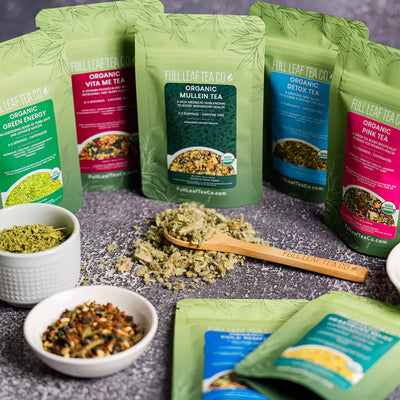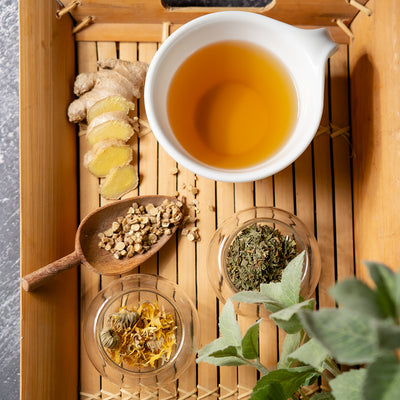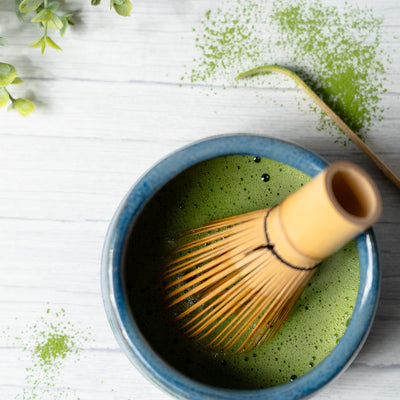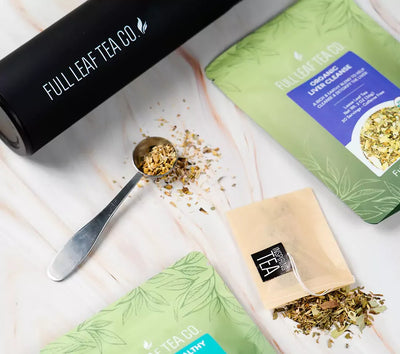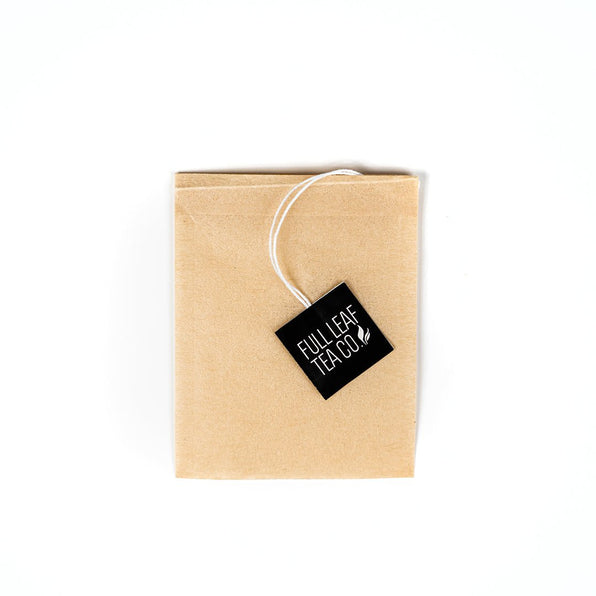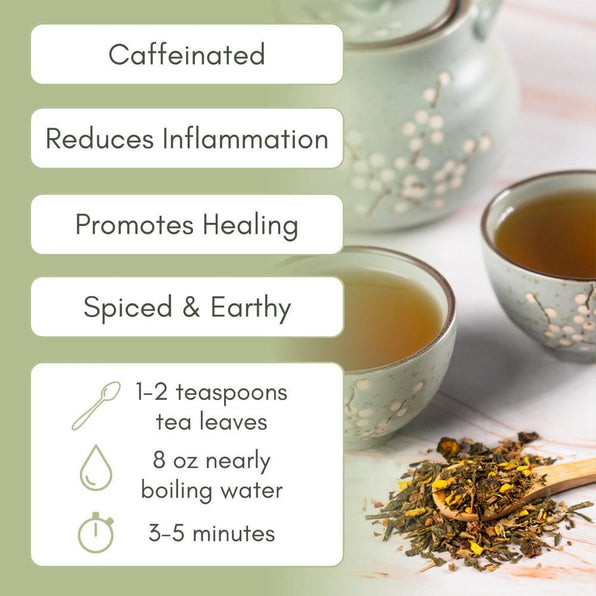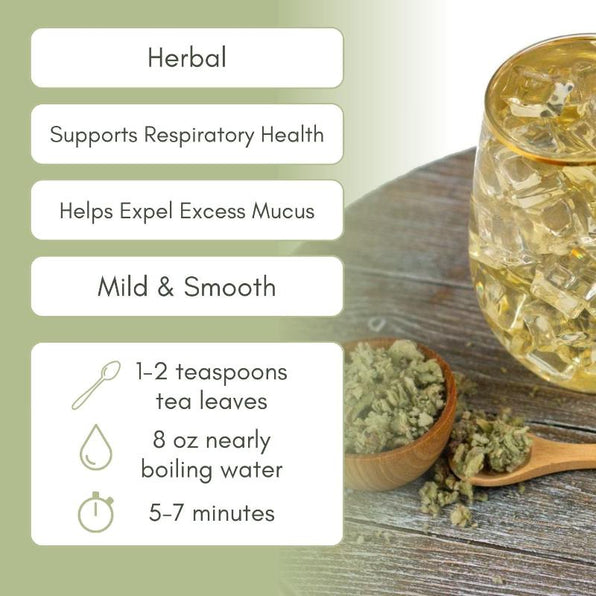Fasting has become increasingly popular, whether for weight loss, longevity, or spiritual reasons. But as more people adopt fasting routines, one common question arises...
Does tea break a fast?
The short answer is no, unsweetened tea does not break a fast. However, the type of tea, what you add to it, and how much you drink can all affect your results. In this guide, we’ll explore how tea interacts with fasting, the science behind its effects on metabolism and digestion, and the best teas to drink while fasting.
What Counts as Breaking a Fast?
To understand whether tea disrupts fasting, we first need to define what “breaking a fast” means. For most people, fasting involves abstaining from calories to give the body time to burn stored energy and enter metabolic states like ketosis or autophagy. Consuming anything that significantly raises blood sugar or insulin such as sugar, cream, or food would break a fast.
Since plain tea contains virtually no calories, sugar, or protein, it does not interrupt these processes. In fact, tea may enhance some of the benefits of fasting.
The Benefits of Drinking Tea While Fasting

1. Supports Autophagy and Longevity
Green tea, in particular, is rich in catechins like EGCG, which may promote autophagy and protect cells against oxidative stress. By supporting cellular repair, tea may amplify the rejuvenating effects of fasting.
2. Enhances Fat Burning
Caffeine and catechins in tea can boost fat oxidation, making it easier for the body to use stored fat for energy during fasting windows. This is why many intermittent fasters use tea to help curb hunger while promoting weight loss.
3. Reduces Hunger and Cravings
Tea contains compounds that may reduce the hunger hormone helping fasters feel more satisfied. Herbal teas like peppermint or ginger can also soothe the stomach and reduce cravings.
4. Improves Focus and Energy
Black, green, and oolong teas contain an amino acid that works synergistically with caffeine to enhance focus. For those fasting for productivity or mental clarity, tea can be an important tool.
Does All Tea Work During Fasting?
Not all teas have the same effects during fasting, but many can be excellent choices when consumed plain and unsweetened. Green, black, oolong, and matcha all provide unique benefits, from boosting energy to supporting blood sugar balance and delivering antioxidants. Herbal teas can also be safe, but it’s important to watch for hidden additives or sweeteners that may disrupt your fast.
Not all teas are created equal so here’s a breakdown:

What to Avoid
Sweetened Teas: Added sugar or honey provides calories that break a fast.
Creamy Lattes or Milk Tea: Even small amounts of milk or cream can disrupt fasting by stimulating insulin.
Flavored Tea Packets: Some contain hidden sugars or artificial sweeteners that may spike insulin in sensitive individuals.
Tea Additives: What’s Safe and What’s Not?
-
Safe During Fasting
- Natural, calorie-free additions can be safely enjoyed during a fast without interrupting its effects. They provide flavor and variety while still allowing your body to remain in a fasted state and continue benefiting from the process.
- Natural, calorie-free additions can be safely enjoyed during a fast without interrupting its effects. They provide flavor and variety while still allowing your body to remain in a fasted state and continue benefiting from the process.
-
Avoid During Fasting - Additives that contain calories or trigger an insulin response will interfere with the purpose of fasting. Even small amounts can shift your body out of its fasting mode and reduce the effectiveness of your efforts.
Even a single teaspoon of sugar (~16 calories) can take you out of a fasted state.

How Much Tea Can You Drink While Fasting?
Moderation is key. While tea is generally safe, too much caffeine can cause side effects such as jitteriness, digestive upset, or insomnia. Most experts recommend keeping caffeine intake below 400 mg per day, roughly 6–8 cups of tea, depending on strength. Herbal teas without caffeine can be enjoyed more freely.
So, does tea break a fast? No—unsweetened tea does not break a fast and can actually enhance fasting benefits. Green, black, oolong, and herbal teas can help you curb hunger, support fat burning, and boost energy, as long as you avoid sweeteners and cream.
For anyone practicing intermittent fasting or extended fasts, tea can be a powerful ally. Choose pure, high-quality teas to maximize the health benefits and enjoy the fasting process with greater comfort and ease.
Sources
- Belza, A., et al. “The Effect of Caffeine, Green Tea and Tyrosine on Thermogenesis and Energy Intake.” European Journal of Clinical Nutrition, vol. 61, no. 3, 2007, pp. 104–111.
- Bryan, Janet. “Psychological Effects of Dietary Components of Tea: Caffeine and L-Theanine.” Nutrition Reviews, vol. 66, no. 2, 2008, pp. 82–90.
- Hursel, R., et al. “The Effects of Green Tea on Weight Loss and Weight Maintenance: A Meta-Analysis.” International Journal of Obesity, vol. 33, no. 9, 2009, pp. 956–961.
- Mayo Clinic Staff. “Caffeine: How Much Is Too Much?” Mayo Clinic, 2023.
- Patterson, Ruth E., and David D. Sears. “Metabolic Effects of Intermittent Fasting.” Annual Review of Nutrition, vol. 37, 2017, pp. 371–393.
- Wu, Cheng-Hsien, et al. “Oolong Tea Consumption Reduces Postprandial Plasma Glucose in Chinese Type 2 Diabetic Patients.” Journal of Nutrition, vol. 133, no. 11, 2003, pp. 2147–2151.
- Yang, Chung S., et al. “Tea and Tea Polyphenols for Prevention of Cancer.” Molecular Nutrition & Food Research, vol. 55, no. 6, 2011, pp. 874–884.

